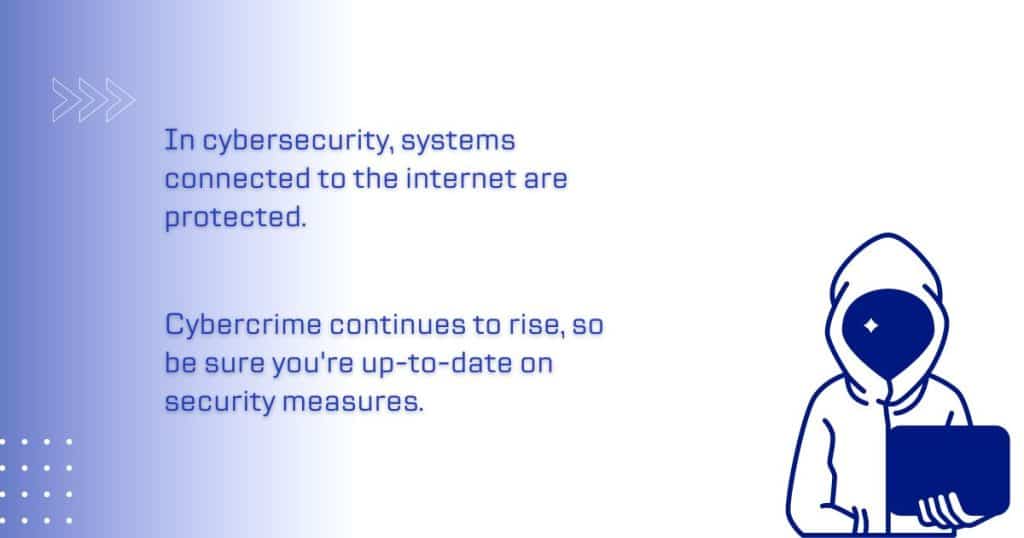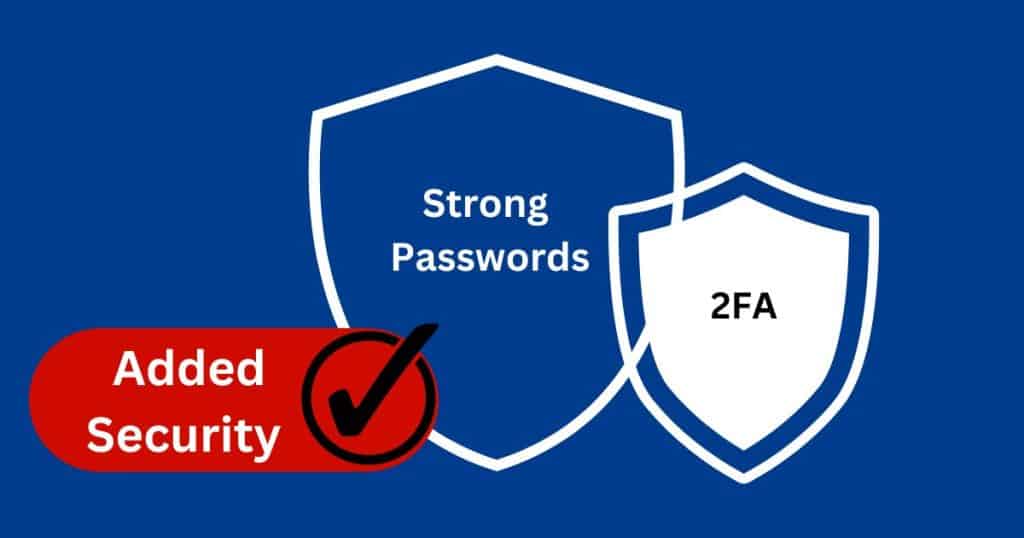Cyberspace is growing, and along with it, cyber crimes are also increasing! That is why web hosting security measures should take center stage to support your endeavors.
Secure hosting for your website is the sum product of individual security features. It would be best if you choose a web hosting provider offering at least a few standard security practices.
Data breaches and malicious attacks can cost the website a lot; they can cause permanent or temporary disabling of your website, loss of money, and diminish the trust customers have in you.
Mostly it is the job of the web hosting provider to manage the website and provide you with all the web hosting security measures. But then also, you must have some idea about such features to ensure your web host is offering you the most secure web hosting.
We will introduce you to some of the essential security measures your web host should provide and some other security features you can implement to protect your website.
Web Security Measures

1. Secure Access with SSL Certificates
Obtaining an SSL certificate is the simplest yet most important step you can take toward your website security.
An SSL(Secure Sockets Layer) certificate keeps the user data secure and verifies ownership of the website. Any website that has an HTTPS web address uses SSL.
Google and all other major search engines label websites without SSL certificates as ‘insecure,’ which will drive away your potential customers.
“Do you want to know where to obtain these SSL certificates from?” It can be obtained from your web host or a Certificate Authority like DigiCert, Comodo or Let’s Encrypt.
DigiCert and Comodo are commercial CAs whereas Let’s Encrypt is free. While the encryption done is similar with both paid and free CAs, the difference is that Let’s Encrypt doesn’t verify the organization behind the URL.
Anyways, free SSL is not recommended for businesses but they are good enough for websites used for blogging.
2. Robust Server and Network Monitoring
Server and network monitoring tools help you keep an eye on your server stats and network traffic. This will help you protect your website from cyber attacks as well as help you have an idea about what is happening when you experience server downtime.
So, you can either choose a web hosting provider that offers basic server and network monitoring tools or install some of the monitoring tools available. Either way, it is essential to keep constant tabs on the health of your website.
Employing the right monitoring tools will help you avoid losing money, protects your reputation, safeguard your data, identify problems with your website early on, maintain your search engine rankings, and helps you understand how visitors interact with your website.
3. WAF Integration

A Web Application Firewall (WAF) is used to filter and monitor HTTP traffic between a web application and the internet. It is not designed to defend against all types of attacks, but as a part of a suite of tools it can create a proper defense against a range of attacks.
WAF is an expensive feature. But, there are web hosts who provide WAF protection as an add-on feature with their web hosting plan. That will be a great deal and you don’t have to worry about manually configuring or setting up a WAF to make your website more secure.
WAF is implemented using three primary ways and thus they are classified as network-based WAF, host-based WAF, and Cloud-based WAF.
Network-based WAF is installed locally and needs physical equipment; it is the most expensive WAF. Host-based WAF is integrated into the software of an application and it consumes local server resources. And Cloud-based WAF is the most affordable and easily implemented WAF.
The most common features of WAF:
- AI-powered traffic pattern analysis
- Identifying attacks with the help of Attack Signatures, which are attack pattern databases.
- Application profiling
- Customization
- DDoS attack detection
Cloudflare, AWS, and Microsoft Azure offer some of the best WAFs.
4. IP Whitelisting
IP whitelisting is used to ensure that only authorized users can access your website and systems. In simple terms, this works like a guest list for an event.
It improves security and prevents many cybersecurity issues if done correctly. Your website can be accessed by many users and administrators. But, whitelisting will make sure they are the only ones who can access their respective areas on your website.
You can easily make mistakes when it comes to IP whitelisting, though. So, many web services can act as a perfect help when it comes to IP whitelisting.
5. Malware Protection
Malware on your website can cost you a lot. Your reputation, website traffic, search engine rankings, and revenue can all be in jeopardy.
Thus, malware protection is essential to stop all the irreversible damages it can cause. Early malware detection and removal are crucial for the business as well as website performance.
Combining personal security techniques with technology is the best way to protect yourself against website malware.
To mitigate the risk of website malware, you can follow several hardening recommendations and security best practices. Consider using strong passwords, multi-factor authentication, and keeping your software updated with the latest security patches.
Web Application Firewalls (WAF) provide another effective solution. It filters incoming traffic and blocks threats before they even reach your website. We have discussed in detail about WAF in this article itself.
It is vital to choose a web hosting provider who carries out daily malware scanning for your website. Understand how they deal with malware attacks and practices followed by them to remove malware before making them your web hosting provider.
6. DDoS Attack Prevention
DDoS (Distributed Denial of Service) attack is a type of malicious cyber-attacks in which hackers flood a website with extra traffic; thus, the website becomes inaccessible to the customers.
It is always better to take measures to prevent DDoS attacks since they are hard to resolve. This can be done with the help of proper monitoring tools which will be able to detect malicious web requests among all the traffic to the website.
Similarly, a Content Distribution Network (CDN) tool can be put to use to reduce the impact of DDoS attacks. This tool is used to deliver cached content to website visitors, which reduces hosting bandwidth. Caching makes DDoS attacks less impactful and chances of disruption of service will be minimal.
If your web hosting provider doesn’t provide CDN support, it is still possible to add it separately to your website.
Cloudflare DDoS is one of the industry leaders when it comes to DDoS attack mitigation. They offer solutions to protect anything connected to the internet.
7. SQLi Prevention
SQL Injection (SQLi) is a type of injection attack that makes it possible to execute malicious SQL statements. SQL statements control the server databases and these kinds of attacks can access, modify, and delete data.
Preventing SQLi vulnerabilities is not an easy task. The technique will depend on the subtype of SQLi vulnerability, the SQL database engine, and the programming language. But there are some generic steps you can follow to prevent it.
Steps to Prevent SQLi:
- Awareness of SQLi and security training to all the tech staff.
- Do not trust any user input as they can add to the risk of SQLi
- Verify and filter user input using whitelists only
- Adopt the latest development technologies which have SQLi protection
- Use verified mechanisms for SQLi protection
- Scan the web applications regularly
8. Data Centre Security
Data centers are where servers are physically housed. Such locations should have a level of security that will prevent malicious attacks from individuals as well as security threats due to natural calamities.
The security and protection of your server can be ensured by a secure web hosting provider. Strict measures need to be implemented to protect all the hardware.
This is done by allowing only authorized personnel to access these facilities, using secure cabinet racks, security cameras, motion detectors, and controlled access points to prevent anyone from physically compromising the servers.
Server rooms or data centers need to be watertight and fireproof to be unaffected by any natural or man-made disaster. Make sure the hosting provider has data centers in areas that are not prone to natural disasters like hurricanes or earthquakes.
9. Passwords and 2FA

Everyone who has access to the backend of your website needs a strong password. Also, regularly change these website account passwords to make it difficult for hackers to compromise your login credentials.
Strong and unique passwords make your website more secure. You can make your passwords strong by keeping them long and using a combination of letters, numbers, and special characters. Make sure that your passwords are different for every website you register with so that if one user account is compromised, another won’t be affected.
Another option to make it difficult for hackers to compromise your website is by enabling two-factor authentication (2FA). 2FA adds an extra layer of security along with the passwords. The use of 2FA will allow you to keep your account safe even if your email address is compromised.
10. SFTP-Supported Platforms
Secure File Transfer Protocol (SFTP) is a network protocol for securely accessing, transferring and managing large files and sensitive data. To put it simply, it helps you manage files on your website.
SFTP access is a better option than FTP access to ensure secure access to your website files.
You can check out FileZilla, which is a free and open-source SFTP program for Linux, MacOS, and Windows.
Features of SFTP:
- Data encryption
- Command execution
- Compress data before transmission
- Username and password authentication
- Better file upload and download functionality
- Public key authentication
11. Get Control of Your Server
It isn’t always a good thing when your web host alone manages all the critical tasks. Even though, it makes things easier for you. Thus, it would help if you had control of your server.
Thus, in times of an emergency, you can take action to resolve some of the issues if you have a sound technical team. For example, you can try to manually restart some of the running services to resolve the issues.
12. User Access Permissions and Restrictions
Not every employee requires access to your website’s data and systems!
The back end of your website should be accessible only to authorized and trusted users. The level of access granted to each user can be customized from your admin panel. Anyways, it is a must for everyone to have strong passwords.
Limiting and restricting user access can minimize potential misuse while ensuring all the users have the access they need. Unrestricted user access can lead to accidental data exposure and intentional privilege misuse; hackers can easily compromise user credentials.
To improve security, authorized users can also be given regular training on measures to keep their accounts secure.
13. Software and OS Updates
Always make sure that your web server software is up-to-date!
As the latest version will include security fixes for vulnerabilities that have been discovered in older versions; this will ensure enhanced protection against malicious attacks.
Newer versions of operating systems prevent security issues and improve compatibility.
For WordPress websites, you can install new plugins to make them more secure.
Make sure you watch out for new vulnerabilities and that your web hosting team is patching them up.
14. Backup and Restore Functionality
A website crashing or getting hacked is a rare yet possible turn of events. Therefore, it is important to make sure that you don’t lose all your data in case of such unexpected occurrences.
So, it will be wise to choose a hosting company that provides backups in their hosting plan and fortunately, most companies have got this feature. Data backups can occur manually or automatically at a daily, weekly, or monthly frequency.
It is ideal to have two types of backups: physical and digital. A physical backup will be helpful in case of server location issues; it should exist in a secondary location. And, a digital backup will be used to restore an earlier version of your website if anything goes wrong.
Furthermore, RAID ( Redundant Array of Independent Disks) is a data storage virtualization technology and it is an excellent way to protect your data. This is an expensive feature but it will keep your files safe even when the server fails.
15. Disaster Recovery Policy
Disaster recovery policies are special web security measures offered by hosting companies to secure and recover data in case of loss of data.
They are in place for dealing with any kind of disaster that might hit your website. On top of this, you will need a disaster recovery plan of your own in case of any emergencies.
It is always better to know more about the disaster recovery policy of your web hosting provider even though how slim the chances of your losing your website data are.
Final Thoughts
Cyber security risks are increasing at an alarming rate. Fortunately, web security measures and technologies are also becoming better and better.
Malicious software is used to collect data or hack a computer when it infects a website. To keep your website and your clients protected you need to be vigilant about all the security threats roaming around your website.
Always try to keep your online information and assets safe with the help of a secure web hosting provider.
